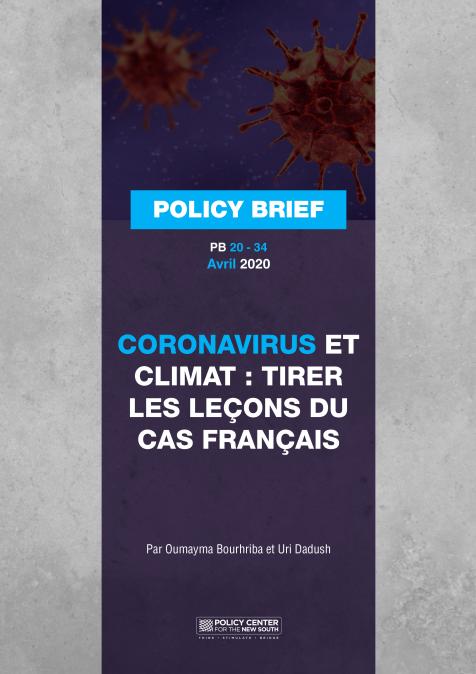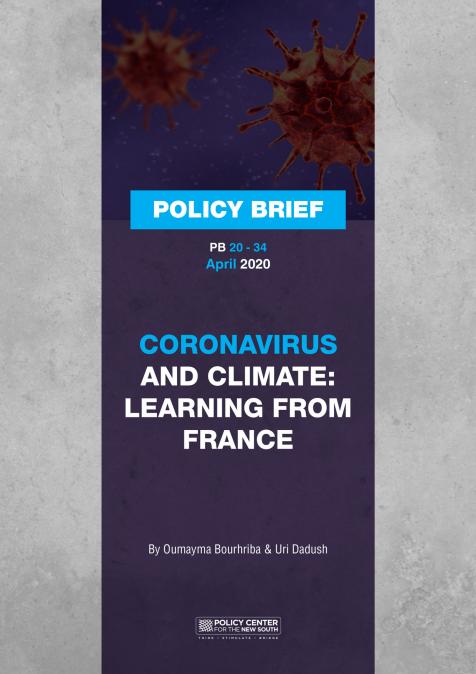Publications /
Opinion
Environmentally sustainable development was the leading theme at the World Economic Forum in Davos in late January 2020. Just two months later, places including Wuhan in China, California’s Bay Area, and New York City experienced unusually blue skies and clean air as a consequence of the COVID-19 pandemic. What has happened is unprecedented and has replaced, for now, the long-term climate change agenda with a short-term public health pandemic agenda as the foremost global urgency. However, if both are related, what impact will coronavirus have on the environment?
The coronavirus has left public health authorities without effective remedies (such as medications and vaccines) for the time being, forcing them to resorting to ‘ancient’ measures including social distancing and general lockdowns of the population in affected regions. This has effectively shut down all non-essential economic activity and freedom of movement, both domestic and cross-border. Industrial production causes 18% of global carbon emissions, and transportation (air, sea and land) another 23%, so a significant reduction in global emissions has occurred instantaneously.
Carbon emissions also decreased significantly during the last global crisis, the financial crash of 2008. This was also as a consequence of reduced global industrial/manufacturing, trade, and construction. However, economic activity normalized quickly from 2010 onwards, and emissions soon exceeded their levels prior to the crisis. According to Julia Pongratz of Munich University, “there are hints that coronavirus will act the same way” . However, this will depend first on how long the COVID-19 pandemic lasts (most countries have not yet reached the peak of the growth of new infections).
China, the United States, the European Union, and other primarily affected economies have taken drastic public finance measures to mitigate the immediate economic effects for their companies and workers. The focus on the economic cost of the COVID-19 pandemic, and protecting economies from the measures taken to combat the coronavirus, will have a limiting effect on public funding for the ‘green’ investment (non-fossil fuels, exiting coal, building CO2-neutral industries) necessary to reach the environmental goals of the 2016 Paris Climate Agreement. The European Green Deal, presented just recently as the principal policy initiative of the new European Commission, has been postponed by the European Parliament to “minimize people’s exposure’ in times of ‘social distancing” (see POLITICO at www.politico.eu/article/6-ways-coronavirus-is-changing-the-environment/) a symbolic change of priorities from long-term survival of the planet to short-term survival of constituents.
The United Nations’ chief-meteorologist, L.P. Riishojgaard, has said “the coronavirus is not so relevant for the climate,” (see Hendrick Kafsack, Frankfurter Allgemeine Zeitung, April 7, 2020) and emissions will eventually rebound to pre-pandemic levels. However, when moving the next UN Climate Change Conference (COP26), in Glasgow, from November 2020 to 2021, UN Secretary-General Antonio Guterres emphasized the continued urgency of the climate crisis. But the silver lining of the pandemic in terms of blue skies and clean air will turn out to be a mirage, and allocating the necessary public funds for achieving the essential goals of the Paris Climate Agreement will become even more of a challenge. And harder economic times might lessen the enthusiasm for climate change measures.
To end on a positive note: the speed of global community action in the COVID-19 crisis could be a precedent for climate action in the long term.
Horst Melcher has been President, Deutsche Telekom AG, Japan, a German telecommunications company, based in Germany. He is Lecturer at Ludwig-Maximilians-University, Munich and 2015 Advanced Leadership Initiative Fellow, Harvard University.





